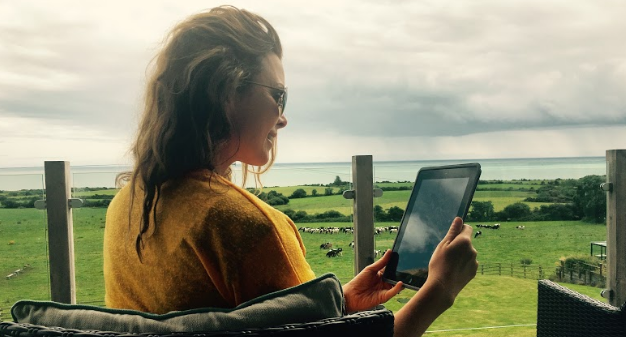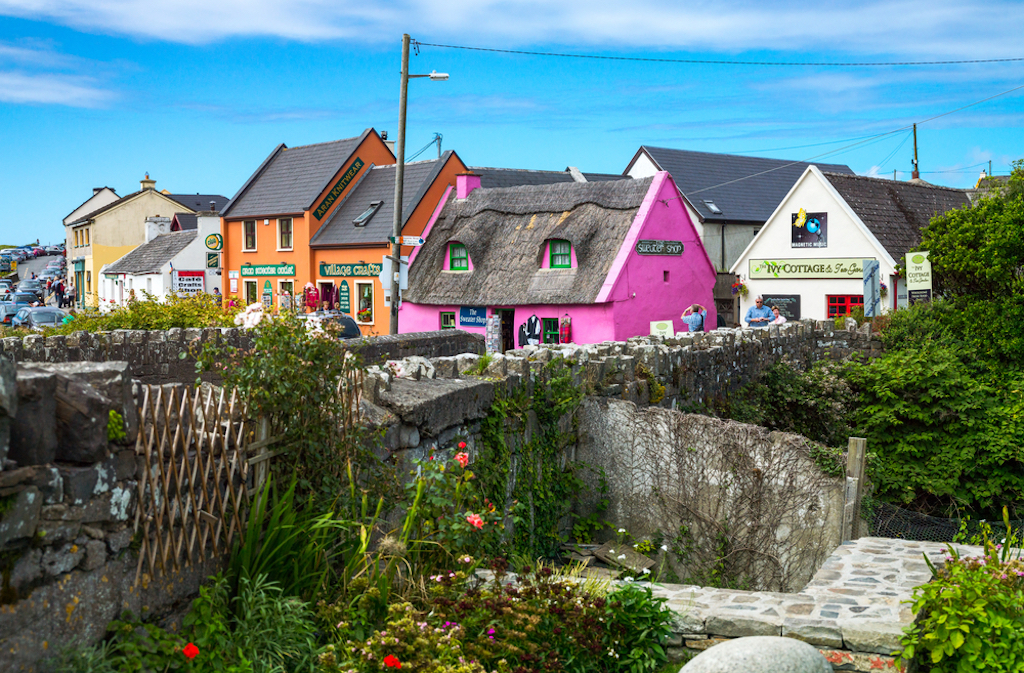The proof is starting to pile up. Remote working and co-working spaces in towns outside of cities are good for people, good for communities and good for business.
The town of Gorey in Co. Wexford is Ireland’s first ‘digital town’ and the location of choice for International Internet Day celebrations on October, 25, 2018.
The celebrations will form part of an initiative by the IE Domain Registry to promote a better understanding of the internet and how it helps people and communities.
One of the many advantages emerging from the arrival of high-speed broadband is the massive shift towards remote working, as more and more people opt out of the soul-sucking daily commute.
Because this movement is happening so quickly, many employers are struggling to figure out how to offer structure and support for employees with flexible working arrangements.
Co-working spaces like the Hatch Lab in Gorey provide precisely this – a structured work environment and supportive community, supports often lacking from home working environments.
Happier life = better business
Hatch Lab resident, Lisa Stacey, has built her business WebArt around this new culture of remote working.
“Remote working has allowed me to maintain my business presence in three locations in Ireland – Cork, Gorey and Dublin. We changed from having all our staff in a single office space in Gorey to using facilities like the Hatch Lab in Gorey for staff to use when they want while also allowing the option of working from home.
“We use similar co-working office spaces in Cork and Dublin as needed to meet clients and work remotely. I believe this flexible remote working style has a positive effect on the mental health of employees,” says Stacey.
“Smart working works better.”
Focus on deliverables, not the time people sit at a desk
Trust is a big factor in flexible working. There are also greater initial requirements on management to design processes that are fit for this purpose, by refocusing on outputs and deliverables from employees rather than the amount of time spent in the office.
The latter metric is, arguably, a false measurement of work effort, so this is a positive outcome.
Once, if employees didn’t show up at the office or for a meeting in person, it was regarded as lazy or rude, but as Vanessa Tierney of Abodoo points out in her message around ‘smart working’, this is, in fact, a much more productive and efficient way to work. It is part of a broader cultural shift that is facilitated by the internet.
“Best of all we have happier staff.”
Helping a big business thrive
Distilled SCH is the parent company of some of the best-known websites in Ireland – DoneDeal.i.e, Daft.ie and Adverts.ie. The teams working on these sites are spread across offices in Dublin, Waterford, and the Hatch Lab in Wexford.
Martin Peters (Distilled SCH) would like to grow his remote teams further, owing to its excellent results.
“Successful distributed and remote working is fundamental to our success. Over the last number of months, we have used the hot desking facility in the HatchLab as a number of our staff live in the Gorey area. We have found remote working one day per week in the HatchLab to have many benefits including increased productivity. But best of all we have happier staff as it has reduced the commuting time over the week.
“Recently, we used the HatchLab to host off-site team meetings and workshops. The modern and bright environment is second to none for these activities,” says Peters.
“Remote working gives a boost to rural economies.”
Grow remote is growing stronger
Remote working creates a boost to rural economies by driving a renewed demand for local services in rural areas. It also stimulates a geographical reconnection of communities across regions, as people shift their focus back to their local environment and away from the cities.
In recognition of this rapid culture shift towards remote working and the growing need for guidance and support by all stakeholders, organisations such as Grow Remote are stepping in to connect remote workers to each other and reconnect rural communities that can support each other.
“Employers are under increasing pressure to reduce their carbon footprint from 2019 onwards.”
Co-working is environmentally friendly
Remote working also takes cars off the road and will be an important factor in mitigating climate change in the future.
Apart from the direct environmental benefits of this, it’s an easy win for employers who will be under increasing pressure to reduce their overall carbon footprint from 2019 onwards, as new EU regulations will push all sectors towards emissions reductions to meet our targets under the Paris Climate agreement.
Because working from home (and heating individual houses) mitigates these benefits, the future shift to a low-carbon economy will drive a greater need for greener, shared workspaces like the Hatch Lab, which offer a structured work environment while removing the need for commuting.
Article by Emer Cooney.






